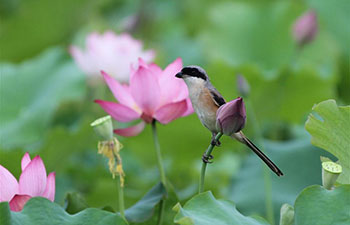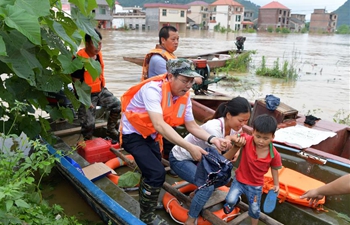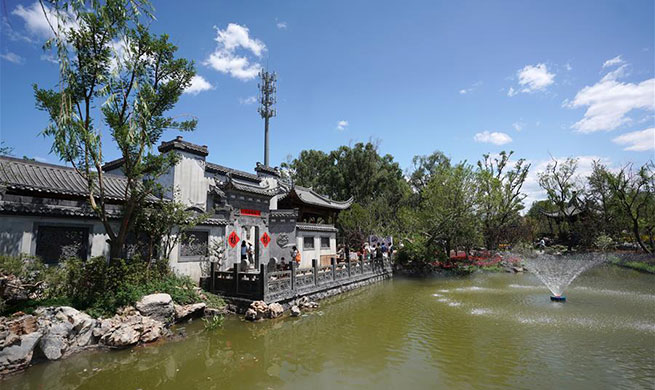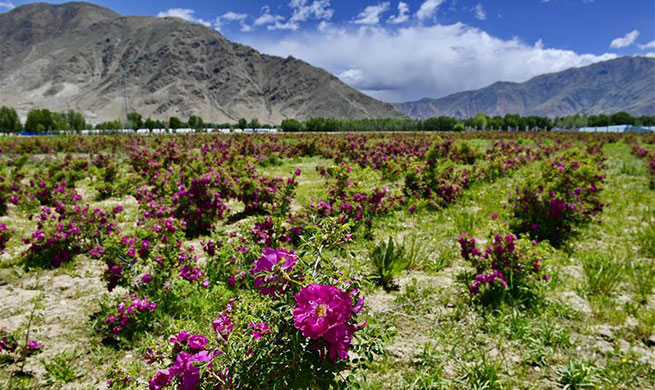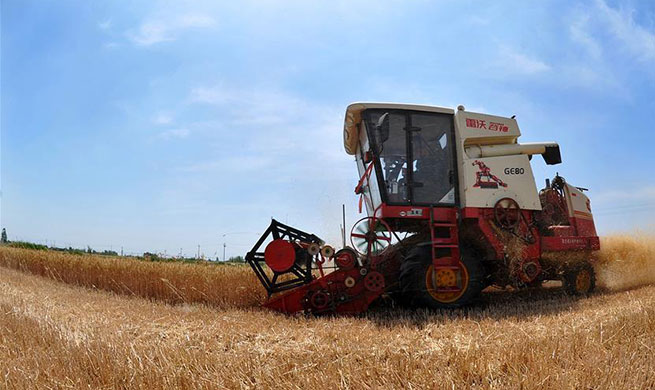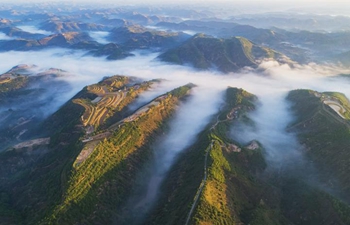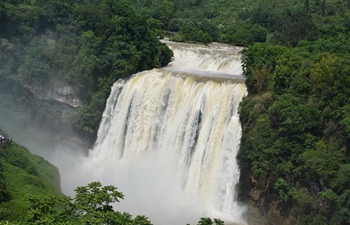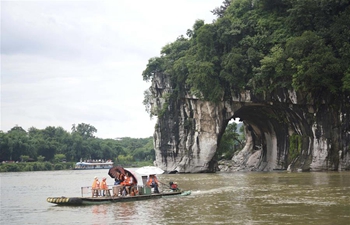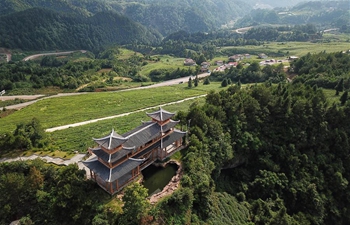by Ronald Ssekandi
PALLISA, Uganda, June 10 (Xinhua) -- After several prolonged dry spells in the remote eastern Ugandan district of Pallisa, villagers set their eyes on the neighboring Limoto wetland.
Matiya Woira, one of the villagers told Xinhua in a recent interview that they had no alternative but to descend on the wetland which had water and fertile soils.
Before long, the wetland also dried up and was not productive any more. The rice paddies were not doing well and the yields continued to diminish.
"We faced long dry spells especially in the middle of the year, our crops were destroyed and the cattle did not have water to drink," Esther Nakyesa, another farmer told Xinhua.
Now at crossroads, the farmers had run out of options. The soils in their gardens had no nutrients and the swamp too had stopped being productive.
After the destruction, the government instructed Woira and his village mates to immediately leave the wetland. The directive was a big blow, according to Woira who said he was not certain of the future since his family depended on the swamp for a living.
"It was a very difficult time for us, we kept wondering how the government wanted us to survive. My garden was not productive and now the government was chasing us out of the swamp which was the alternative," said Woira.
STATE OF WETLANDS
Uganda has one of the highest population growth rates in the world, according to figures by the country's ministry of finance.
The country's population is 40 million people and official predictions indicate that by 2027, the population would have swollen to 50 million people.
This huge population has caused pressure on the land, forcing people to resort to wetland reclamation to farm.
Ministry of water and environment figures show that the country's wetland coverage has reduced to 8 percent from 13 percent of the country's land surface.
Conservation experts argue that because of this depletion, parts of the country receive long dry spells leading to destruction of crops, and when the rain season starts, it is erratic leading to loss of lives and property.
RESTORATION
While giving his State of Nation Address on June 6, Ugandan President Yoweri Museveni decried the rate at which wetlands are being destroyed in the country.
"In ignorance, some of our people have been destroying the wetlands and forests. Hence, the erratic rains like the ones we saw recently. This must be stopped and it is easy to stop," Museveni said.
"People in the wetlands and encroaching on the lake-shores, river-banks, should peacefully leave these bodies and we help them with alternative livelihood -- especially fish-farming which is even more lucrative than rice growing and growing yams," he added.
The president instructed all local government administration officials to persuade the encroachers to leave the swamps and the forests after they have harvested the current seasonal crop and never to come back.
He said failure to heed to the call, the administrative officials will be dismissed and may be charged with relevant criminal offenses.
Besides the new directive, government with support from United Nations Development Program in 2015 embarked on wetland restoration in 20 districts across the country.
In Pallisa district, after Woira and his village mates were thrown out of Limoto Wetland, government embarked on restoring the wetland. The farmers formed a group and just out of the wetland, the government set up a small irrigation scheme.
The group farms throughout the year with the help of the irrigation scheme especially during the long dry spell. The water for the scheme is pumped from the wetland.
The farmers have also set up fish ponds and watering troughs for the cattle.
"We have embarked on modern farming, which is getting us out of poverty. Many farmers in this group can now afford school fees for their children and are also now building permanent structures as their houses." Dawson Daka, the chairman of the farmers' group told Xinhua.
Daka said previously they used to earn 300,000 shillings (81 U.S. dollars) per plot but now they earn 2 million shillings (540 dollars) per plot. In total they have 15 plots. They are mainly involved in horticulture.
Paul Mafabi, head of the wetland restoration project at the ministry of water and environment said after the farmers were given alternative livelihood, the wetland has regained life.
Mafabi said three-quarters of the wetland has been restored.
"The significance is in terms of micro climate, providing moisture that helps crops to be grown, during the dry season. We are beginning to see changes." He said.
